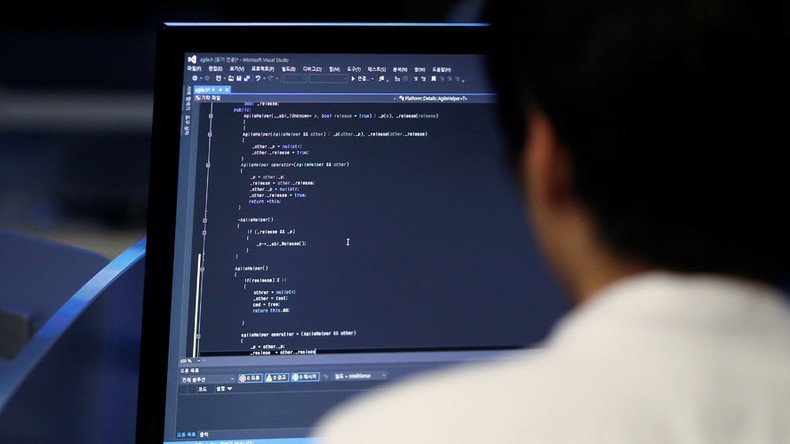FBI can collect home IP addresses without warrant when probing websites – court

The FBI doesn’t need a warrant to collect private IP addresses and other computer-related data during probes and dragnets, a federal court has ruled. The judge said the FBI’s actions were within constitutional bounds, rejecting privacy concerns.
A court in Virginia declined to side with child pornography suspect Edward Matish, who accused the government of “unconstitutional” access to his private computer in February 2015.
Matish was one of 137 people charged in the probe of Playpen, a website that contained “tens of thousands” of child pornography postings of both videos and pictures.
Having officially obtained a warrant, in December 2014 the FBI installed a malware on Playpen's server to obtain identifying information from everyone logging into the website. Such tactic is officially known as “network investigative technique” or NIT.
The feds did not immediately shut Playpen down, but seized control over it and continued operating it from a government facility in the Eastern District of Virginia.
Between February and March 4, 2015, the malware automatically netted any users who input their logins and passwords. It then made their computers send certain information to the FBI, including IP addresses and operating system names.
This May, Matish filed a motion demanding the government suppress “all evidence seized from his home computer,” arguing that the issued warrant “lacked probable cause.”
On Wednesday, however, US District Judge Henry Coke Morgan rejected Matish’s motion, fully supporting the FBI by ruling that its agents did not need a warrant in the first place.
“The Court FINDS suppression unwarranted because the Government did not need a warrant in this case,” Morgan wrote.
Morgan argued that Matish had “no reasonable expectation of privacy” for his IP address when he logged into a child pornography website. Citing a Supreme Court ruling, Morgan compared the FBI’s actions to “peering into a gap in closed blinds,” which does not violate the Fourth Amendment.
Government may access citizens’ phone location data without a warrant – US Court of Appeals https://t.co/gxyixQdTDMpic.twitter.com/RHlZNk8dgu
— RT America (@RT_America) June 1, 2016
“So, no constitutional violation resulted from the Government's conduct in this case,” Morgan ruled.
Wednesday’s ruling triggered sharp criticism from the Electronic Frontier Foundation (EFF), a digital rights group that called the decision “dangerously flawed.”
The EFF’s main concern is that Morgan’s ruling would set a precedent that “law enforcement would be free to remotely search and seize information from your computer, without a warrant, without probable cause, or without any suspicion at all.”
“To say the least, the decision is bad news for privacy,” EFF’s senior staff attorney Mark Rumold wrote.
The EFF had filed an amicus brief in support of Matish, arguing that the FBI’s dragnet violated the Fourth Amendment. However, the group admits that it “did not have the intended effect.”














